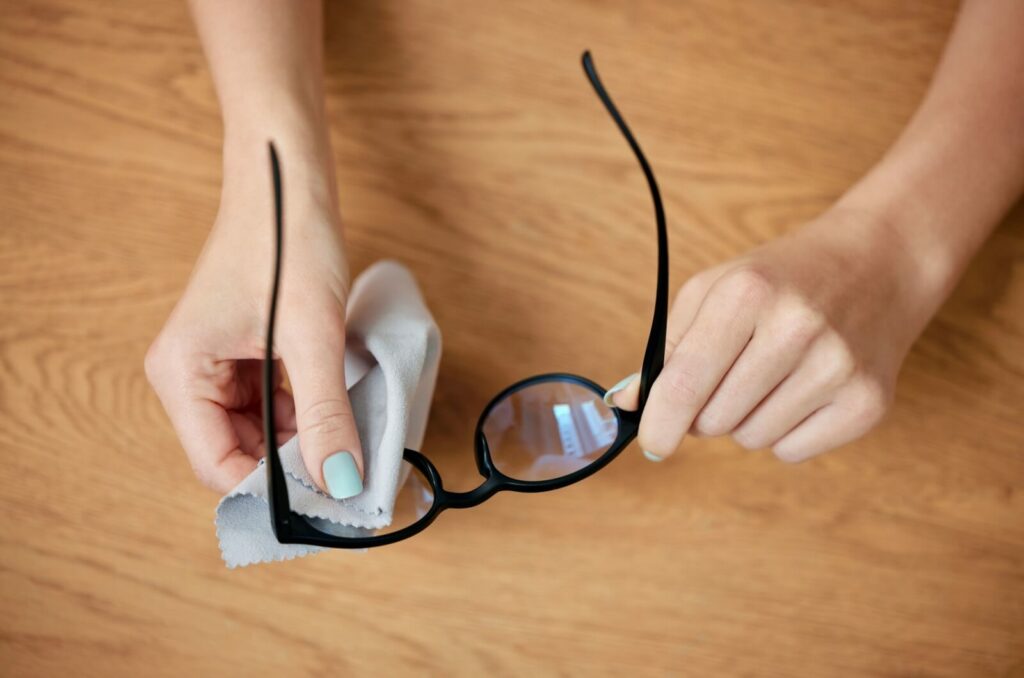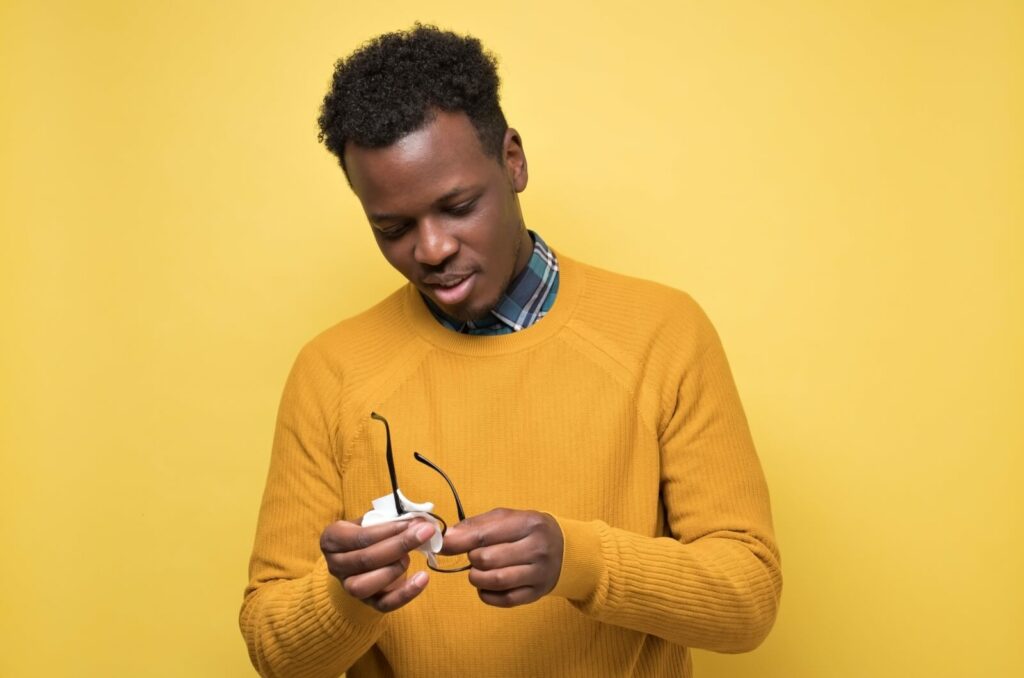Mishaps happen, and sometimes super glue ends up in places it shouldn’t—like on your eyeglass lenses. This can create a major inconvenience, especially if your glasses are essential for daily activities.
The key to getting super glue off eyeglass lenses is using dish soap and a microfiber cloth, plus some patience and the right technique. If your glasses get damaged, your optometrist can help make minor repairs to get them back in working order or find a new prescription to keep you seeing clearly.
The Importance of Caring for Your Lenses
Caring for your eyeglass lenses is about more than prolonging the life of your eyewear. Your glasses help you see clearer and more comfortably, so proper care and maintenance can support your visual health.
Clean lenses allow for better focus, reduced eye strain, and a generally better visual experience. Smudges, scratches, and—yes—residues like super glue can obscure your lenses and obstruct vision.
Your eyes can get distracted by these imperfections, causing your eyes to work harder than they should. Eventually, smudges, scratches, and residues may cause eye strain and even headaches..
The Benefits of Clean Lenses
Well-cared-for, high-quality lenses promote visual clarity, offering an unobstructed view. Particularly important for activities like reading, driving, and work, maintaining clean lenses support visual acuity and promote focus.
Clear lenses also reduce eye strain by reducing the need for your eyes to constantly adjust. Obstructed lenses can cause your eyes to tire easily, leading to fatigue.
Regular cleaning and proper care of your lenses can help prevent scratches and other types of damage, extending the lifetime of your glasses.
How to Remove Super Glue from Lenses
Removing super glue from your eyeglass lenses takes patience. You don’t want to rush this. Using incorrect techniques or rushing the process can lead to further damage or scratches on the delicate lens surface.
Here’s a guide to help you safely remove super glue, hopefully without damaging your lenses. Some materials you’ll need include:
- Mild dish soap
- Warm water
- Microfiber cloth
You may have heard of using acetone to clean glasses. Acetone, such as from nail polish remover, is a very powerful chemical that can remove sticky residue on your lenses—but it comes with risks.
Most modern glasses have some form of lens coating, such as anti-glare, non-scratch, or UV protection. Also, some lenses are made of lightweight, shatter-resistant plastic. Acetone can damage lens coatings and is particularly harsh against plastic lenses.
Instead of using acetone, we recommend mixing a half cup of warm water with one teaspoon of dish soap. This solution can soften up the glue and make it easier to remove.

Step-by-Step Guide:
- Prepare the area: Start by placing your glasses on a clean, flat surface. Gather all the materials you need to avoid interruptions.
- Apply cleaning solution: Dip a microfiber cloth into your soap and water mix until it’s moist. Gently hold the cloth against the super glue, allowing the mixture to slowly seep into the glue.
- Wait until the glue softens: Keep holding the cloth against the glue. This should slowly soften it into a clay-like consistency. If the glue remains hard, repeat the process several times more.
- Rub gently: Once the glue softens, use your microfiber cloth to gently rub the area in a circular motion. Use light strokes and be cautious to avoid scratching the lens.
- Dry thoroughly: Use a dry microfiber cloth to thoroughly dry your lenses. This step can check for any leftover sticky residue and determine whether you need to repeat the process.
Tips for Caring for Your Lenses
Keeping your glasses glue-free is just the start to maintaining their pristine condition. Here are some tips to help them remain in top shape.
Use Proper Cleaning Materials
Always use a microfiber cloth to clean your lenses, even when it’s not a super glue emergency. Paper towels, tissues, or clothing can scratch the surface. Specialized lens cleaning solutions are also recommended over household cleaners, which may contain harsh chemicals.
Store Glasses Correctly
When not in use, store your glasses in a hard case to protect them from scratches, dust, and accidental damage. Avoid leaving them in hot environments, such as in your car or by the window during summer, as heat can warp the frames and lenses.
Handle with Care
Always handle your glasses with both hands to avoid bending the frame. When removing your glasses, hold them by the temples rather than the lenses to prevent smudging.
Regular Inspections
Regularly inspect your glasses for any loose screws or damage. Tighten any loose screws with a small eyeglass repair kit and address any issues such as cracked lenses or bent arms promptly to avoid further damage.
Your Glasses Also Need a Professional Touch
Regular care and maintenance can help keep your glasses in excellent condition, allowing you to enjoy the benefits of clear vision without interruption. While these tips can help you manage everyday lens care, sometimes your glasses need a professional touch.
Total Vision Long Beach offers comprehensive eye care services, so if your glasses are damaged, ill-fitting, or simply aren’t up to your standards, we can help you get back to seeing clearly. Book an appointment today and enjoy the peace of mind that comes with knowing your vision is in good hands!



